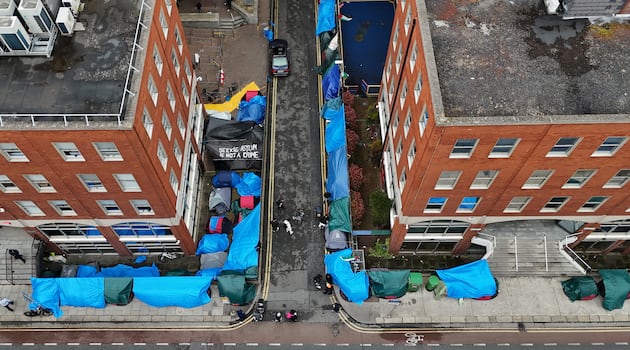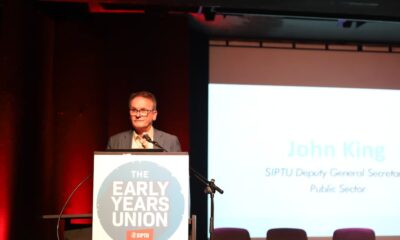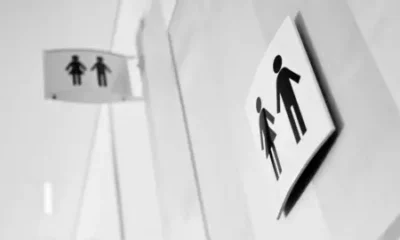Other News
Paying €10,000 to families to drop asylum claims will ‘save money’ for State – O’Callaghan

Read more on post.
A €10,000 payment to families who agree to drop their claims for international protection and return home will “save money for the State”, Minister for Justice Jim O’Callaghan has said.
The Minister has stood over significant increases in payments to families and individuals who agree to forgo their applications and enter a voluntary return programme.
Under the revised terms, families will be paid a total of €10,000 and individuals will be offered up to €2,500, if they have applied for international protection before September 28th. The previous amounts available for voluntary return was €1,200 per individual.
Mr O’Callaghan said that even the increased amounts would result in a saving to the State.
“It costs, on average, €122,000 per applicant in accommodation and processing costs,” he said. He added that the average cost of accommodation for applicants was €30,000 per year.
“It makes sense to provide an incentive for them to leave the country at an earlier stage,” he said. He added that other European countries such as the United Kingdom and Denmark offered greater sums for voluntary returns.
“The objective here is to try to encourage people to recognise that the likelihood is that their application is not going to succeed and they should leave earlier.
“By doing that, I’m saving the State money, and there’ll be more resources available for other causes,” he said.
Mr O’Callaghan said there had been a total of 45,000 applications between 2022 and 2024 and the State has planned for spending €1.2 billion in accommodation costs in 2025.
[ Taoiseach says move to pay asylum seekers to drop claims and leave ‘makes sense’Opens in new window ]
His aim was to reduce the number of applicants to 10,000 a year, he said. The two ways of achieving that goal were by expediting the application and appeal process and by sending out a strong message that if a person fails in their application, there will be a consequence.
“If you fail in your application to asylum, you must leave the country. If you don’t do it voluntarily, we will engage in enforced deportations. Any system that is effective and coherent has to have that. And I was pleased to hear that the assistant high commissioner for the UNHCR announced last week that that is an important part of any immigration system,” he said.
Mr O’Callaghan said that the average time for a decision of first instance had been reduced significantly but agreed that there are delays in expediting appeals. He said the International Protection Bill, which provides that some appeals will be determined without oral evidence, will contribute to faster decision times.
Mr O’Callaghan said there are about 33,000 people in international protection at present.
He said his department had renegotiated as many as 100 contracts with private accommodation providers, resulting in savings of up to €50 million for the State.









